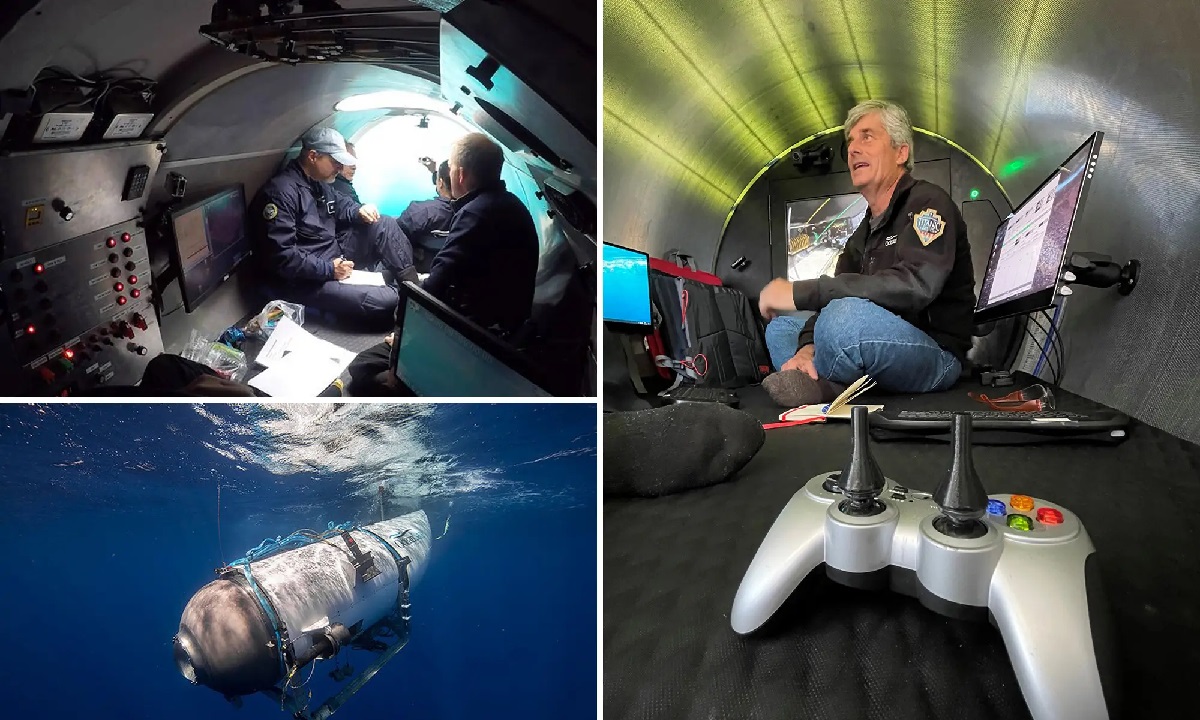It has come to light that OceanGate CEO Stockton Rush had college students work on developing the electrical system for the Titan submarine, which subsequently detonated, taking all five people onboard with it.
Rob McCallum, a specialist in marine research, has revealed that Rush, one of the individuals who died on the sub, had Washington State University interns who would “drink Kool-Aid” and boast about how a PlayStation remote was used to run the Titan. Rush was one of the people who perished on the sub.
Although it was discovered that a recent graduate of Washington State University had made false statements to a student magazine about working on the Titan’s electrical system with his classmates, McCallum and other experts noted that Rush ignored several safety precautions they had highlighted.
According to a quote from a former intern named Mark Walsh, who graduated with a degree in electrical engineering and gave an interview to the student newspaper of Washington State University in February 2018, “The electrical system as a whole was designed by us, put into practice by us, and it works.”
Walsh, who subsequently became a lead for electrical engineering at OceanGate, said that he had hired a few interns from his alma mater and was keen to boost the number of interns he had employed.
Rush had requested McCallum to oversee the Titanic Operation for him, but when the expert went to Rush’s plant outside of Seattle, he was highly disturbed by what he discovered there. Rush had asked McCallum to manage the Titanic Operation for him.
McCallum’s story to The New Yorker states that “everyone was drinking Kool-Aid and saying how cool they were with a Sony PlayStation.” McCallum’s report also states that “everyone was saying how cool they were with a Sony PlayStation.” At the time, one of my questions for Sony was, “Does Sony know it has been utilized for this application?” You know this is not the purpose for which it was designed. There were many different points of failure.
Rush had said that the technology of the Titan submarine was based on Bluetooth. Still, McCallum clarified that this presented a significant risk to the crew’s safety. In-built controls are present in every single sub on the planet for this exact purpose: to make sure you are not helpless if the signal is lost.
Other experts who worked at OceanGate, such as the head pilot David Lochridge, who later left the company due to safety concerns, referred to the Titan as a “mutt” and a “lemon” that was “not safe to drive.” They said that the Titan was “not safe to drive.”
According to Walsh, the electrical system of the Titan was purportedly developed by interns, and McCallum had a frightening experience in the workshop where they worked. Walsh also said that he was there throughout the incident. This is the most recent in several shocking revelations on the issues with Rush’s company.
The organizations debunked the claims made by Rush’s business that they had a considerable collaboration on the design of the Titan with NASA, Boeing, and the University of Washington.
In an interview with the Everett Herald from a month ago, a representative from Washington State University said that while the university did not “have an association with OceanGate,” they were aware that “some of our alumni had worked at OceanGate.”
OceanGate is being investigated on allegations that the company exaggerated and misrepresented the part it had in the design of the Titan submarine to entice wealthy customers by telling them that the product was risk-free and winning their business. The denials issued by Boeing, NASA, and the University of Washington all support this assertion.
Rush and OceanGate’s choice to charge guests $250,000 a ticket for a ship that had previously malfunctioned, was not independently inspected, and had received multiple warnings is causing more controversy, and people are raising new questions about the decision.
According to Shahzada Dawood, 58, and Suleman Dawood, 19, who passed away when the Titan detonated at a depth of 12,500 feet (3,500 meters), Rush allegedly traveled to Britain to convince the family that the submarine was safe to transport them to the wreckage of the Titanic.
~ OceanGate CEO Titan Submarine
